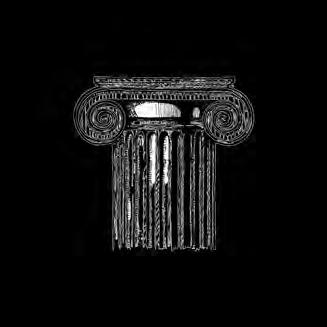REMARKABOOK

What is a brand?
The word “brand” comes from the word “bronze.” It has its origins in the marking of cattle or the etching of symbols on objects to easily and quickly identify to whom it belongs. The idea has evolved over time to mean more than merely your mark or your signature, but your entire uniqueness, your essence. Similar to how our behavior is directly affected by what we believe, a brand is a representation of who we really are. Sometimes the word “brand” makes us think of logos, corporate marketing campaigns, or a layer of cosmetics applied to something to make it more appealing than it really is. In reality, a brand is what is truly there behind a company, person, or organization. When everything else is removed, a brand is what still remains. A strong understanding of its brand helps an organization align its interaction and communication with its community of clients, team members and fans.
Why do we need this book?
This brand handbook is a palette that will help you express AmPhil’s identity and serve as a clear foundation for the AmPhil brand. It will allow you, and anyone who works with your brand, to effectively create a consistent brand experience using the examples and guidelines provided. That said, this ‘Remarkabook’ is not meant to be the ultimate authority on your brand, because we know that your brand experience will change over time. It is meant, however, to serve as a guide to AmPhil now and in the near future.

CONCEPTUAL VERBAL VISUAL Values 7 Personality Traits 14 Archetype 21 Story 22 Voice 25 Tone 26 Mood 27 Logo 29 Pattern 31 Colors 33 Typography 35 Icons 38 Photo guidelines 39 Table of Contents

Conceptual
VALUES
PERSONALITY TRAITS
ARCHETYPE
STORY
How do you conceptualize a brand?
Every brand has a distinct set of values and personality traits. Values define how you live out your purpose, and personality traits define how you approach your people and work. We’ve identified a set of core values and personality traits that we feel reveal something honest, compelling, and remarkable about what you are doing through your business. These will help guide decisions about the appropriate visual and verbal elements of your communications.
Brand Values
PART NERSHIP
In the trenches together
Partnership means that we’re all about relationships. It means that we see the inherent value in building them, cultivating them, and standing by them through the conflicts and setbacks that inevitably come. Words like relatability, availability, trust, and ownership show we understand that honest relationships are vital to what we do. They’re life-giving and an intractable part of the American social fabric.
What it looks like
We get to know our clients inside and out. When we partner with a nonprofit, they know from the get-go that we’re fully on board with them. Rather than rushing to conclusions or snap judgments, we take the time to learn all about what drives them, their unique vision, and the goals they’re striving for.
Partnering with others by building relationships wins trust. It allows us to be the eager, exceptional, responsive, and irreplaceable guide that sticks around through thick and thin.
What it doesn’t look like
Partnership doesn’t mean pushing services a client doesn’t really need. We don’t manipulate, sugar-coat, or force-feed anything… and we don’t back away from candid conversations which actually build and solidify trust.
Words that brought us here
Reliability, Openness, Dependability, Relationships, Honesty
LARGE-HEARTEDNESS
Give more than you get
Being large-hearted means seeking to give more than you get. It means enjoying time together, lacing work with humor, fun, and generosity, and creating a net positive in all our interactions. Words like magnanimity, warmth, humor, and flourishing characterize our brand of large-hearted conviviality.
8 | CONCEPTUAL
What it looks like
We’re generous with our time and considerate of others. We go the extra mile. We make a point of spreading warmth, courtesy, and some humor among our team members and every client we interact with. While we maintain high expectations, speak candidly, and stay on track, we’re the dead opposite of some lifeless row of cubicles filled with time-card punching drones.
We laugh… and if we’re doing it right, we’re fun to be around.
What it doesn’t look like
Tiptoeing around a difficult conversation just to keep up an appearance. Being so eager to please that we overpromise, candy coat reality, or offer something we don’t have the capacity to deliver.
Large-heartedness doesn’t mean showing off how generous we are… or offering grand-sounding solutions that aren’t in a client’s best interest. Large-heartedness is a true expression of who we are, what drives us, and how we interact. Combined with wisdom, shrewdness, and candor, it’s a core strength—not an appearance.
Words that brought us here
Generosity, Belonging, Courtesy, Warmth, Decency, “Go above and beyond”
HONORING TRADITION
Foundational truths that guide us
People need big ideas to be truly free. These include self-governance, independence, honesty, and the pursuit of knowledge. These ideas—and their blessings—do not come to us out of nothing. They are handed down.
Honoring tradition means not taking the wisdom of the past for granted. It means appreciating the classical, moral-ethical foundations that have made American society prosperous and free. And it means we’re committed to cultivating informed, vigilant citizens who value truth, faith, and self-governance because they understand that humans flourish in community.
What it looks like
We celebrate western heritage, from Greece, Rome, and the Renaissance all the way to the founding principles of the United States Constitution. We challenge ourselves. Like the ancient Greeks, we selfquestion, return to first principles, and seek wisdom and accumulated knowledge to sharpen our thinking. Upholding and promoting timeless values, using them to guide us through complex, thorny problems that tempt us with easy compromise.
What it doesn’t look like
Putting up busts of Socrates and George Washington but having no idea why. Champing at the bit to follow some trend in the news cycle. Throwing heritage, tradition, and wisdom out the window because it’s too offensive.
Words that brought us here
Independence, Tradition, Freedom of Association, Faith, Self-government, Pursuit of knowledge
10 | CONCEPTUAL
PRACTICAL WISDOM
Timeless ideas fix problems
Practical wisdom (phronesis) is the ability to be wise in daily, practical matters. It means combining new and old, applying accumulated knowledge to seek the best of both worlds.
Those with practical wisdom draw from history, tradition, and experience, but don’t stop there. They use what’s timeless to navigate sudden change, problems, and the shape-shifting present with agility, adaptability, and a rigorous intellectual approach.
What it looks like
We stay sharp, pragmatic, and disciplined. We comb past experiences and master new skills for the best possible approach. We draw on acquired knowledge when things change rapidly.
“No magic bullet.” Cultivating good habits consistently over time.
Above all, we pay attention. Something that’s worked wonders in the past may not be the answer we’re looking for right now… but applying practical wisdom means bringing context and straightforward thinking to any new solution.
What it doesn’t look like
Staying stuck in the past, or recycling some old approach because that’s what’s easiest. Saying “I told you so,” and having nothing to offer when problems arise. Arrogance. The world is big, and we don’t know everything. So we’re willing to learn, even learning with our clients in some cases.
Words that brought us here
Practicality, Habits, Intellection, Flexibility, Diligence
DEEP THINKING
Clarifying the complex
Deep thinking is the ability to comprehend complex principles, turning them into legitimate insights. Experience, inquisitiveness, and creativity are other ways to describe this value.
More than a value, it’s a disciplined approach to the pursuit of knowledge, detail, and application of experience and wisdom to new challenges. Rather than “going with your gut,” deep thinking requires a creative approach, courage, curiosity, and wisdom.
What it looks like
Deep thinking means diving beneath the surface, not just skimming it. We take a thorough look at what we know, where we’ve been, and the lessons we’ve learned before forging ahead into the unknown. We think with wisdom, but stay curious and imagine possibilities.
What it doesn’t look like
Rolling out solutions, suggestions, or models that have worked before and just plugging them into a new situation without considering all the factors involved. Encouraging clients to leap at shortcuts, even if they’re convinced they’ll take them where they want to go. Encouraging clients to simply follow a trend, go with the herd, or imitate what everyone else is already doing.
Words that brought us here
Experience, Pursuit of knowledge, Inquisitiveness, Challenge, Learning
12 | CONCEPTUAL

Personality Traits
FORTHRIGHT
Being straightforward is more than a character trait; it’s a communication tool that builds trust and reciprocity. A straightforward posture moves partnerships toward valued relationships. Others respond to it in turn, knowing that their time, intelligence, and involvement is valued. Straightforward personalities can be friendly but get quickly to the point when needed. Helpful descriptors of a straightforward organization include realistic, clear, professional, and rooted.
What it looks like
We value others. We value their time, intelligence, and their interest in working with us. We communicate in a clear, predictable, but engaging way, balancing warmth and perfect candor. People and clients are more than opportunities; we take an interest in them and put in the work of developing an honest relationship.
What it doesn’t look like
We don’t waste someone’s time beating around the bush. If there’s a hard truth to share or an unpleasant conversation to be had, we approach it head-on, in a straightforward, respectful way. We don’t mislead others or misrepresent what’s really going on. We’re honest in everything we say and do.
Words that brought us here
Practical, Predictable, Authentic, Professional, Responsible, Rooted
14 | CONCEPTUAL
CONVIVIAL
Convivial personalities are fun to be around. They create a culture of liveliness, humor, and acceptance that draws others in. Friends are welcome and treated with warmth. Newcomers discover that we’re pleasant, cheerful, and interested in them. Other words to describe this trait might include unpretentious, casual, even refreshing.
What it looks like
We’re inviting. While we’re not horsing around like someone on The Office, we greet each other, share jokes and stories, and generally enjoy being together. It means an atmosphere that takes care of business and also leaves people wanting to come back again.
What it doesn’t look like
We’re not putting on some act or show that’s not us. We’re also not pushing boundaries and trying so hard that it makes people uncomfortable. Rather, we enjoy what we do and share that joy wherever we can.
Words that brought us here
Friendly, Enjoyable, Pleasant, Unpretentious, Charming, Witty
PRINCIPLED
Principled people and companies express unshakable bravery. Even when they’re being polite, they’re willing to stand their ground when they need to. By sticking to principles, they show that they’re steadfast and reliable leaders, confident and balanced as they approach the unknown. Helpful descriptions might include balanced and tough. Maybe even blunt, when necessary.
What it looks like
We know when to stand our ground, and we know when to flex. When new situations demand we think outside the box or take a risk, we’ve got a north star that guides us, informs us, and keeps us confident. We exude balance, confidence, and sharp honesty in our interactions.
What it doesn’t look like
We never budge on anything. We shoot down ideas or possibilities because they’re outside the scope of what we’re familiar with. We’re inflexible and not interested in something that wasn’t our idea.
Words that brought us here
Courageous, Spirited, Contrarian, Thought leader, Honorable, Dignified
16 | CONCEPTUAL

BRIGHT
Intelligent personalities show comprehension in interactions. They get the big picture, follow along with details, and bring sharp insights and conclusions to the table. People and organizations are drawn to intelligence; an ace in the hole is always an asset. People might also call you smart, philosophical, intuitive, or clever.
What it looks like
We understand the unique nature and challenges of each situation. And we respond accordingly with our clearest, strongest analysis, given what we know and what we don’t. Intelligence means more than just being right. It also means gathering context, being thorough in learning something new, and being willing to explore possibilities we hadn’t considered.
What it doesn’t look like
Being right all the time—or assuming we are. Getting hung up on ego or reputation when we’re challenged on something. Closing our minds to ideas that aren’t ours.
Words that brought us here
Smart, Philosophical, Elegant, Believable, Profound, Intuitive
18 | CONCEPTUAL

DILIGENT
Industrious/agile personalities want to get to work because even work is fun. They take initiative. Being industrious means rolling those sleeves up, getting started, and not stopping until every i is dotted. It means seeing the value in serving others well, in getting small details right because they translate to significant results.
Other words for this might include self-starting, energetic, and intense.
What it looks like
When we’re working, we’re all in. We’re willing to put in the hours and effort to deliver what we’ve promised and without fail. We don’t shy away from daunting tasks, or from taking the long road; we’re confident that one step at a time wins the longest race.
What it looks like
Shortchanging ourselves or others because it’s expedient, or because we run into a problem that has no easy fix. Being careless, noncommittal, or passive when something’s on the line.
Words that brought us here
Hardworking, Adventurous, Energetic, Grit, Durable, Self-starting
20 | CONCEPTUAL
Archetype
The 12 Jungian Archetypes are universal, mythic characters used to represent the basic ranges of human motivations. We assign these to brands based on their values to help define motivations and characteristics that embody the organization.
THE EXPERT
Core Desire
Build up to a utopian state through understanding.
Brand Voice
Knowledgeable, assured, guiding
Also known as the consultant, professor, philosopher, or sage, Expert brands bring their vast and often highly-specialized expertise to bear in helping customers solve specific problems and navigate the intricacies of life. They are often known to teach, advise, and guide customers rather than merely offering a simple solution that a customer employs on their own. Experts make their customers smarter.
Brand Story
STRENGTHENING CIVIL SOCIETY
Communities flourish when people join together to work for good. Such “voluntary associations” are the lifeblood of civil society, and they imbue our lives with meaning.
But voluntary associations require money. And that requires clear goals, effective strategy, and— because they are not-for-profit—fundraising. When people don’t give or raise money well, this meaningful work withers.
Since 2009, American Philanthropic has helped nonprofit organizations grow and flourish with practical guidance, strategic analysis, and no-nonsense consultation.
Rather than peddling secret methods or promising fast results, American Philanthropic helps nonprofits raise money by doing the right things the right way, consistently over time. And we help donors identify and support the work that matters.
It’s work that asks the hard questions. That uses the best tools for the job. That finds the best way to bring people together, voluntarily.
When your aim is to work for good, you owe it to yourself to work smart, as well as hard.
22 | CONCEPTUAL

Verbal
VOICE TONE MOOD
24 | [CHANGE] VERBAL
Voice
Your general attitude towards the world.
CALMING, CLARIFYING, ENCOURAGING
American Philanthropic approaches its clients with a wealth of knowledge, practical experience, and highly qualified team members.
That is, they operate with a high level of competence… and without sounding know-it-all, or condescending, their voice should convey this status.
When team members speak, they’re calm, collected, knowledgeable… but they’re not in it just to tell you what you want to hear.
As an imaginary character, American Philanthropic would speak with a deep, warm voice, the kind that pulls people back to reality and common sense while encouraging them to launch forward. Not just friendly, it’s a voice that’s encouraging, truthful, and life-endowing.
This knowing, reassuring intelligence would lend itself to elegance and directness. By the way they speak, American Philanthropic signals that they understand the nonprofit world. They’ve been there, themselves and they’re glad to help.
Tone
If voice is the attitude an author has towards the world as a whole, then tone is the attitude that the author has towards the little corner of the world they’re talking about right now. Your tone expresses how you feel towards whatever you’re writing about today.
CURIOUS, FRIENDLY, ENLIVENING
Rather than overeager, or falsely sincere, American Philanthropic’s tone toward their corner of the world would be curious, friendly, and convivial... an elegant, socially intelligent balance of consideration for others, warmth, and humor.
From the way they speak, write and interact, they lift the mood and enliven the conversation.
Their tone would also convey some of the liveliness, humor, and camaraderie the team enjoys amongst itself and among those they work with. From clever anecdotes to thoughtful questions and crackling laughter, this is a tone that draws you in, welcomes you, and leaves you smiling.
26 | VERBAL
Mood
When you write, the mood is how you make your reader feel about your topic. Do you want them to feel romantic? Do you want them to laugh?
RELAXED, ASSURED, AND INTRIGUED
American Philanthropic woos its audience by imparting a mood that’s calm, assuring… but crackling with intrigue and interest.
Those reading, listening, or conversing with team members will feel calmed and welcomed, and they’ll know right off the bat that they’ve come to the right place. They’ll sense intelligence, warmth, wisdom, attentiveness. They’re in good hands… and that’s assuring.
But after quickly sensing a wealth of experience, and seeing superb metrics and practical steps that make sense for their nonprofit, they’ll be hooked.
With solid data, sage advice and a warm handshake from some of the most talented, experienced people in nonprofit consultancy, American Philanthropic’s clients will feel assured and confident. They’ll be delighted in knowing that they’ve got the best guide they could possibly have.
In many cases, American Philanthropic’s history, experience, and unique appreciation of western tradition will pique their client’s interest, intrigue them, and give them a taste of something they’d like to know more about.
American Philanthropic stands for values that don’t always run with the herd… especially when major companies and institutions all over are embracing polarizing political stances as a way to simply run with the herd.
COLORS
TYPOGRAPHY
ICONS
PHOTO GUIDELINES
28 | [CHANGE]
LOGO
Visual
PATTERN
Logo STANDARD
Logo WITH TAGLINE
Over Dark USE LIGHT BRAND COLORS
Monogram
OVER LIGHT OR DARK
Minimum Width
STANDARD: .75 INCH WITH TAGLINE: 1 INCH
Minimum Clearance ONE “P” IN ALL DIRECTIONS
Logo Restrictions
DO NOT ALTER PROP ORTIONS, COLORIZE WITH OFF-BRAND COLORS, USE WITH LOW CONTRAST, ADD A DROP SHADOW, OR ATTEMPT TO RE-CREATE
30 | VISUAL
Usage AmPhil
Pattern
Use to give open space or background colors more depth and interest
Note: To achieve this look in InDesign, place vector AmPhil Oak Tree, choose fill color, then direct-select tree and adjust “Inner Shadow” effect settings as needed. Lower tree opacity to achieve desired look.
Brand Colors
This is AmPhil’s brand color palette, to be used in all digital and print applications.
AmPhil Black
H: 555649
R: 85, 86, 73
C: 61, 52, 66, 35
PANTONE 418 C
AmPhil White
H: f7f8f9
R: 247, 248, 249
C: 2, 1, 1, 0
PANTONE 663 C
PRIMARY
Cherry Red
H: a23c3c
R: 162, 60, 60
C: 26, 87, 76, 18
PANTONE 704 C
Faded Navy
H: 50686e
R: 80, 104, 110
C: 71, 48, 47, 19
PANTONE 431 C
Colonel Yellow
H: cea33c
R: 206, 163, 60
C: 20, 34, 91, 1
PANTONE 110 C
Porcini Taupe
H: 8a7e76
R: 138, 126, 118
C: 46, 45, 49, 9
PANTONE 408 C
Marble Cream
H: e3e1da
R: 227, 225, 218
C: 10, 8, 12, 0
WARM GRAY 1 C
SECONDARY
Autumn Rust
H: ac6e53
R: 172, 110, 83
C: 28, 60, 70, 10
PANTONE 7591 C
Potomac Green
H: 797f55
R: 121, 127, 85
C: 50, 35, 73, 18
PANTONE 7749 C
ACCENTS
32 | VISUAL
Note: Primary colors should always be dominant when choosing a color palette. Avoid the use of too many accent colors. See sample palettes on the following page.
P R I M A R Y S E C O N D A R Y A C C E N T S
Values
Sample Color Palettes
Note: Do not create a palette without primary colors, with accent colors as dominant, or using all accents in a single palette.
34 | VISUAL
Brand Typography
Use these brand fonts when they are available. Revert to the following page otherwise.
Paganini Bold - Headlines
SOFIA PRO REGULAR ALL CAPS - SUBTITLES + META
Haboro Serif Norm Regular - Body
Aa AA Aa Aa Bb Cc Dd Ee Ff Gg Hj Ii Jj Kk Ll Mm Nn Oo Pp Qq Rr Ss Tt Uu Vv Ww Xx Yy Zz 0 1 2 3 4 5 6 7 8 9 AA BB CC DD EE FF GG HJ II JJ KK LL MM NN OO PP QQ RR SS TT UU VV WW XX YY ZZ 0 1 2 3 4 5 6 7 8 9 Aa Bb Cc Dd Ee Ff Gg Hj Ii Jj Kk Ll Mm Nn Oo Pp Qq Rr Ss Tt Uu Vv Ww Xx Yy Zz 0 1 2 3 4 5 6 7 8 9
Alternate Typography
Use these alternate fonts when brand fonts are not available.
Header Font is Garamond Bold
SUBTITLE + META FONT IS HELVETICA REGULAR ALL CAPS
Body font is Garamond, which is a very safe font to use across most applications and programs, including email clients, web applications, and more. This is the combo to use for most web and email platforms. Use this set if brand fonts are unavailable. If this set is unavailable, see below.
Header Font is Times New Roman Bold
SUBTITLE + META FONT IS ARIAL REGULAR ALL CAPS
Body font is Times New Roman, which is a very safe font to use across most applications and programs, including email clients, web applications, and more. This is the combo to use when all other options are unavailable.
36 | VISUAL
U N I V E R S A L W E B S A F E
Typography Sizing
Lorem Ipsum
EARCIET DEMODICTIBUS
Volut restrum dolescietur, oditium ut accaboris quaspis endit, aut vel ipid ut quia voluptatate eatur?
Il il iunt hictum endit, quatet quas et expelectur, tem in nia secte ipsam volectem. Feressit ex exeruptur aut occumentias es dollupt asperiam:
• Dollupt ateniscid quaecto exceperferum et aut ab in num est, ent.
• Ique con nimilicabo. Nam essitati blaut voluptam nobis restium fugitiae nestota pa sam.
Lorem Ipsum
Volut restrum dolescietur, oditium ut accaboris quaspis endit, aut vel ipid ut quia?
EARCIET DEMODICT
Il il iunt hictum endit, quatet quas et.
Dollupt ateniscid
Feressit ex exeruptur aut occumentias es.
NAM ESSITATI
Blaut voluptam nobis restium fugitiae nestota.
Ique con nimilicabo
Nam essitati blaut voluptam nobis restium.
NISQUIDEBIS DITAM
Soloreptae re, sit atature hendant impores.
28 PT H1 / 32 PT H2 / 23 PT 14 PT 10/15 PT 12/17 PT .25 IN H3 / 18 PT H4 / 14 PT H5 / 12 PT H6 / 11 PT
Icons

AmPhil’s iconography should look hand-drawn and demonstrate depth and richness, without being overly detailed. Sample icons and sketch style are shown below.




38 | VISUAL
Photography Guidelines
AmPhil’s photography should give off a classical elegance, with slightly muted colors and lower contrast.




Remarkabook created by: RESOUNDCREATIVE.COM
















